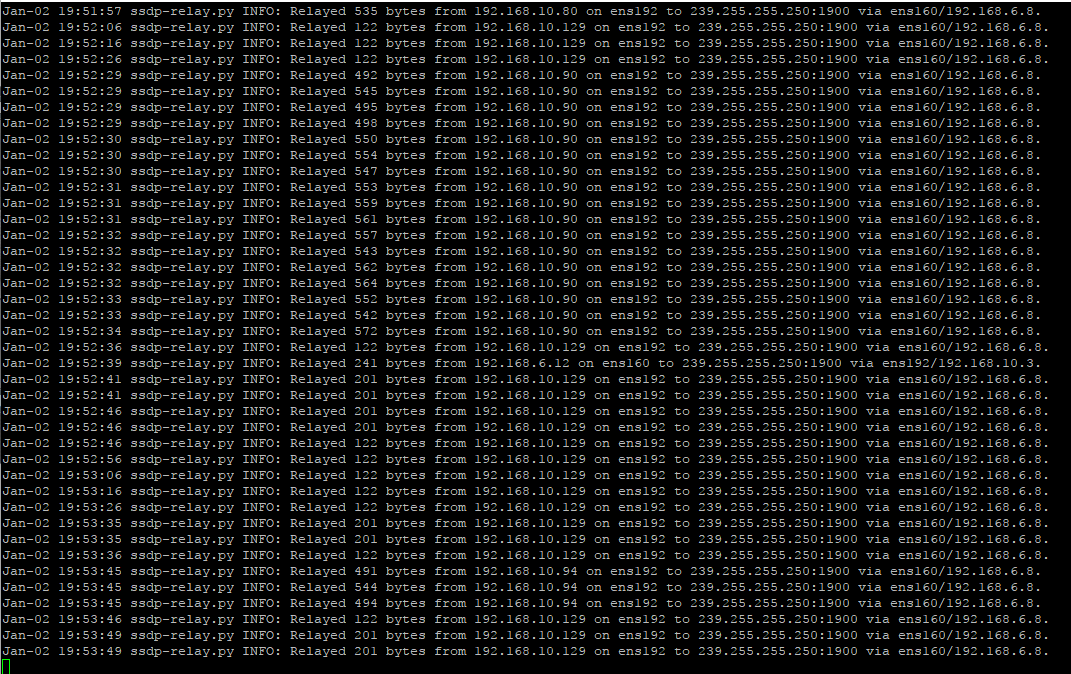You might find this handy, if you have a linux box that handles connectivity between subnets...
https://github.com/alsmith/ssdp-relay
This relays the multicast SSDP packets that the app uses to locate the speakers between interfaces and allows discovery to function even if your telephone happens to be on a different network than your speakers. Share and enjoy!
Enter your E-mail address. We'll send you an e-mail with instructions to reset your password.





